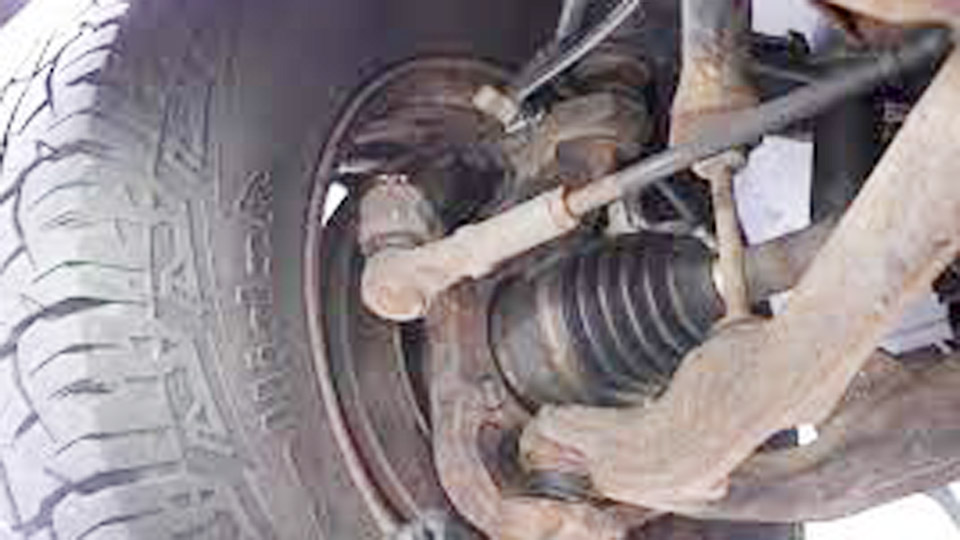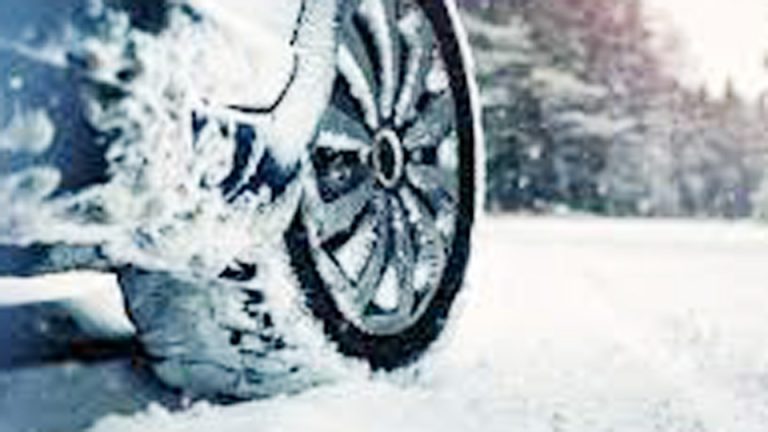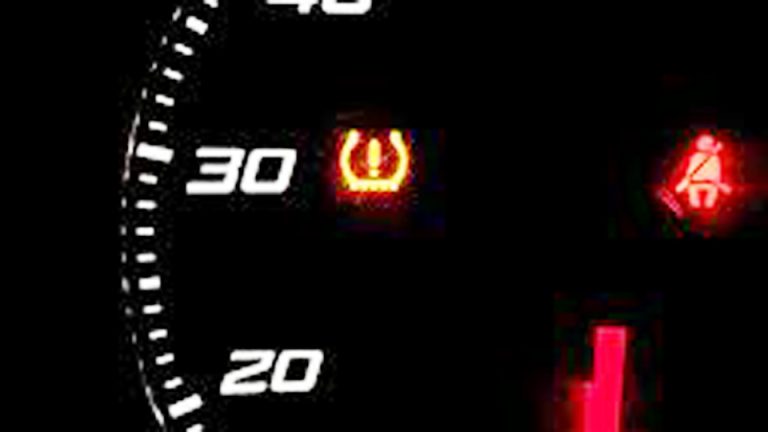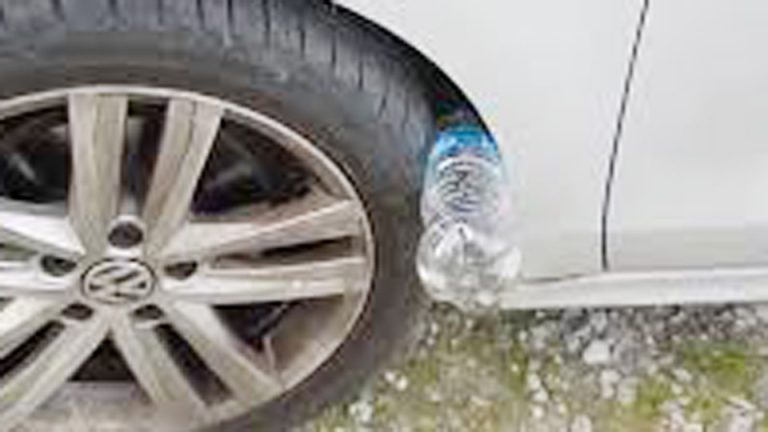I’ll never forget the first time I heard that unsettling noise Sancho rubbing noise coming from my car’s wheel. It was a hot summer afternoon, and I was cruising down a quiet road in my trusty 2015 Honda Civic. The sound was faint at first, like a rhythmic scraping or grinding, but it grew louder over a few days. My stomach sank—car troubles are never fun, and this one felt like it could be serious.
As someone who’s spent years tinkering with cars, I knew I had to figure out why my car wheel sounded like it was rubbing. What started as a small annoyance turned into a full-on investigation, and I’m here to share everything I learned along the way.
If you’re hearing a similar noise, don’t panic. I’ve been through this, and I’ll walk you through the possible causes, how I diagnosed the problem, and the steps I took to fix it. By the end, you’ll have a clear roadmap to tackle that rubbing sound and get your car running smoothly again.

Image by tiktok
Understanding the Rubbing Noise: What It Sounds Like
The noise coming from my wheel was hard to ignore—a gritty, scraping sound that seemed to match the rhythm of the wheel’s rotation. Sometimes it was a high-pitched squeal, other times a low grinding. It got worse when I turned corners or hit bumps, which made me think something was physically rubbing against the wheel or tire.
If this sounds familiar, you’re likely dealing with one of a few common issues. In my case, the noise was a clue that something was out of alignment, worn out, or stuck where it shouldn’t be.
Let’s break down the most likely culprits based on my experience and years of working on cars. Each one has its own telltale signs, and I’ll share how I narrowed it down.
Common Causes of a Rubbing Noise from Your Car Wheel
When I first heard the noise, my mind raced through the possibilities. Over the years, I’ve dealt with enough car issues to know that a rubbing sound can come from several sources. Here’s what I considered:
Worn Brake Pads or Shoes
Brake pads were my first suspect. I’d replaced them on my Civic a couple of years earlier, and I knew they wear down over time. When brake pads get too thin, the metal backing plate can rub against the rotor, causing a grinding or scraping noise. In my case, the noise was loudest when I applied the brakes, which made this a strong possibility.
Stuck Brake Caliper
Another issue I’d seen before was a stuck brake caliper. The caliper is supposed to release the brake pad from the rotor when you let off the brake pedal, but if it’s stuck, the pad keeps rubbing. This happened to me once on an older truck, and the noise was similar—a constant scraping that didn’t go away.
Wheel Bearing Issues
Wheel bearings were another concern. These little components allow your wheels to spin smoothly, but when they wear out, they can produce a growling or grinding noise. I’d dealt with a bad wheel bearing on a previous car, and the sound was more of a rumble than a sharp rub, so I wasn’t sure this was the issue.
Debris or Foreign Objects
Sometimes, the problem is as simple as a rock or piece of debris stuck in the wheel assembly. I once found a small stick lodged between the brake caliper and rotor on a friend’s car, causing a terrible scraping noise. It’s an easy fix, but you have to check carefully.
Tire or Wheel Misalignment
Misaligned tires or a bent wheel can also cause rubbing. If the tire is rubbing against the wheel well or a suspension component, you’ll hear a rhythmic noise that changes with speed. I’d experienced this on a car with aftermarket rims that weren’t properly fitted.
Other Possibilities
Less common issues include a loose wheel cover, a damaged rotor, or even a failing CV joint. These are trickier to diagnose, but I kept them in mind as I worked through the problem.
My Step-by-Step Diagnosis Process – Car Wheel Sound
I’m not one to rush to the mechanic for every little issue—I like to figure things out myself when I can. So, I grabbed my toolbox, jacked up the car, and started investigating. Here’s the process I followed to pinpoint the cause of the rubbing noise.
Step 1: Listening Closely
I started by driving slowly in a quiet parking lot, windows down, to pinpoint which wheel was making the noise. In my case, it was the front driver’s-side wheel. The sound was a sharp, metallic scrape that got worse when I braked or turned left. This gave me a clue that the issue was likely related to the brakes or something in the wheel assembly.
Step 2: Visual Inspection
With the car safely jacked up and secured on jack stands, I removed the wheel to get a better look. I checked for obvious signs of trouble—debris, loose parts, or anything out of place. I found a small pebble stuck near the brake caliper, but removing it didn’t stop the noise. So, I moved on to the brakes.
Step 3: Checking the Brake Pads
I pulled off the brake caliper to inspect the pads. They were worn down to almost nothing, and the metal backing was scraping against the rotor. Bingo—that was the source of the noise. The pads were so thin that they weren’t doing their job properly, and the metal-on-metal contact was causing the grinding sound.
Step 4: Inspecting the Rotors and Caliper
While I had the caliper off, I checked the rotor for damage. It had some light scoring from the worn pads but was still in decent shape. I also tested the caliper to make sure it wasn’t sticking. It moved freely, so I ruled that out as a problem.
Step 5: Ruling Out Other Issues
To be thorough, I spun the wheel hub to check for bearing noise. It felt smooth, with no grinding or wobbling, so I crossed wheel bearings off the list. I also inspected the tire for uneven wear or rubbing marks, but everything looked normal. The problem was definitely the brake pads.
Fixing the Rubbing Noise: What I Did
Once I knew the brake pads were the issue, I got to work fixing it. I’d replaced brake pads before, so this was familiar territory. Here’s how I handled it, along with some tips to make the job easier.
Gathering Supplies
I headed to my local auto parts store and picked up a set of high-quality ceramic brake pads for my Civic. They’re quieter and produce less dust than metallic pads, which I prefer for daily driving.
I also grabbed some brake cleaner, anti-seize lubricant, and a tube of brake grease. My rotors were still good, so I didn’t need to replace them, but I made sure to check their thickness just in case.
Replacing the Brake Pads
Back at home, I removed the old pads and cleaned the caliper and mounting bracket with brake cleaner to remove dust and grime. I applied a thin layer of brake grease to the back of the new pads to prevent squealing and made sure the caliper pins were well-lubricated with anti-seize. After installing the new pads, I reassembled everything and torqued the bolts to spec.
Testing the Fix
With the wheel back on, I took the car for a test drive. The rubbing noise was gone, and the brakes felt smooth and responsive. I drove gently for the first 100 miles to let the pads bed in properly, avoiding hard stops. The whole job took about an hour and cost me less than $50, compared to the $200 or more a shop might charge.
Comparing Brake Pad Options
To help you choose the right brake pads, here’s a quick comparison based on my experience with different types over the years:
| Type | Pros | Cons | Best For |
|---|---|---|---|
| Organic | Affordable, quiet, easy on rotors | Wear out quickly, less stopping power | Budget-conscious drivers |
| Semi-Metallic | Durable, strong stopping power | Noisy, produces brake dust | Performance driving, heavy vehicles |
| Ceramic | Quiet, low dust, long-lasting | Expensive, less effective when cold | Daily drivers, luxury vehicles |
I went with ceramic pads for my Civic because they’re quiet and keep my wheels cleaner. If you’re on a tight budget, organic pads might be fine, but they won’t last as long.
Other Potential Fixes for Rubbing Noises
If your rubbing noise isn’t caused by brake pads, here’s how I’d approach the other possibilities based on past experiences:
Stuck Brake Caliper
A stuck caliper requires cleaning or rebuilding. I’ve done this by removing the caliper, cleaning the pins with brake cleaner, and lubricating them with high-temperature brake grease. If the caliper is damaged, replace it—new ones cost about $50-$100.
Wheel Bearing Replacement
Bad wheel bearings are trickier. I replaced one on an old SUV, and it required a hydraulic press to remove the old bearing and install the new one. Unless you have the tools, this is a job for a professional, costing $200-$400 per wheel.
Debris Removal
For debris, a quick inspection usually does the trick. I once used a screwdriver to pry out a rock stuck in a friend’s brake assembly. Be careful not to damage any components, and double-check for loose parts.
Tire or Wheel Issues
If the tire is rubbing, check your wheel alignment or look for signs of a bent rim. I had a bent rim once after hitting a pothole, and the tire rubbed against the strut. A new rim fixed it, but alignment at a shop costs about $80.
Preventing Future Rubbing Noises
After fixing the brake pads, I made a mental note to stay on top of maintenance. Here’s what I do to prevent rubbing noises from coming back:
Check Brake Pads Regularly: I pop the wheels off every 6 months to inspect the pads. If they’re less than 1/4 inch thick, it’s time to replace them.
Clean the Brake Assembly: I use brake cleaner during every oil change to keep dust and debris from building up.
Listen for Early Warning Signs: A faint squeal or grind can turn into a big problem if ignored. I catch issues early by paying attention to new noises.
Drive Smoothly: Hard braking and aggressive driving wear out pads and rotors faster. I try to brake gently whenever possible.
Emotional Reflections on Car Troubles
Dealing with car issues can be stressful, especially when you hear that awful rubbing sound. I remember feeling frustrated and a little anxious the first time it happened, wondering how much it would cost to fix.
But once I dove into the problem, I realized it wasn’t as bad as I thought. There’s something satisfying about diagnosing and fixing your own car—it’s like solving a puzzle. Plus, it saves money and builds confidence. If you’re feeling overwhelmed, take it one step at a time, and don’t be afraid to ask for help if you need it.
Useful Tips for Readers
Here are some practical tips I’ve picked up over the years to help you deal with a rubbing noise:
Act Quickly: Don’t ignore the noise. A small issue like worn brake pads can lead to damaged rotors or worse if left unchecked.
Invest in Quality Parts: Cheap brake pads might save you a few bucks upfront, but they wear out faster and can cause more noise.
Learn Basic Maintenance: Replacing brake pads or cleaning a caliper isn’t hard with the right tools. Watch a few YouTube tutorials to build your skills.
Keep a Maintenance Log: I jot down every repair in a notebook, including dates and costs. It helps me track when parts need replacing.
Find a Trusted Mechanic: If you’re not comfortable doing the work yourself, find a reliable shop. Ask friends for recommendations or read online reviews.
Frequently Asked Questions
What does it mean when my car wheel makes a rubbing noise?
A rubbing noise from your car wheel usually means something is physically contacting the wheel or brake assembly. In my experience, the most common cause is worn brake pads scraping against the rotor, like what happened with my Civic. Other possibilities include a stuck brake caliper, debris in the wheel assembly, or a misaligned tire.
How do I know if my brake pads are causing the noise?
If the rubbing noise gets louder when you brake or turn, it’s likely the brake pads. I noticed this on my car when the pads were worn down to the metal backing. You can confirm by removing the wheel and checking the pad thickness—less than 1/4 inch means they need replacing.
Can I drive with a rubbing noise coming from my wheel?
I wouldn’t recommend it. Driving with a rubbing noise, like the one caused by my worn brake pads, can damage your rotors or other components, leading to expensive repairs. It’s best to diagnose and fix the issue as soon as possible.
How much does it cost to fix a rubbing noise?
It depends on the cause. Replacing brake pads, like I did, cost me about $50 for parts. A stuck caliper might run $50-$100, while wheel bearings can cost $200-$400 per wheel at a shop. Debris removal is usually free if you do it yourself.
How can I prevent rubbing noises in the future?
Regular maintenance is key. I check my brake pads every 6 months and clean the brake assembly during oil changes. Driving smoothly and addressing noises early can prevent small issues from becoming big ones.




